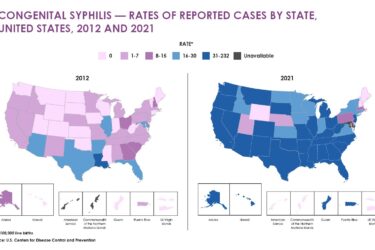
I am sure many of you are scrambling to cover the latest about the Delta variant and the leak of data that informed the CDC’s change in mask guidance this week.
The data – leaked to the New York Times and the Washington Post Thursday evening (July 29) – showed those vaccinated can still be contagious, and there are more vaccinated people becoming infected than expected: 35,000 a week of 162 million vaccinated.
It sounds scary, but the key thing to remember in your reporting is to put risks in context: “Vaccinated people can transmit Delta if infected, however the majority of transmission is still by UNVACCINATED – that is where the focus should be,” said Dr. Leana Wen, an emergency physician and an excellent health communicator, on Twitter Friday, July 30.
Analysis of data from other countries, such as Israel and the United Kingdom, continues to show that all the vaccines approved by the Food and Drug Administration in the U.S. for COVID-19 are effective in preventing severe illness, hospitalization and death, said Michael Osterholm, PhD and MPH, the director of the University of Minnesota’s Center for Infectious Disease Research and Policy, on the organization’s July 29 podcast called “Untangling the Data.” The one-hour podcast is definitely worth a listen.
“The good news is vaccines are still doing their job – keeping people out of hospitals and the morgue,” Dr. Tom Frieden, former CDC director, wrote on Twitter this week.
Why the CDC didn’t release the data set publicly isn’t known, though Wen may have offered a clue by saying on Twitter : “CDC should have released these data earlier. We can’t wait for peer review,” suggesting the agency was taking a cautious approach by giving a set of scientists time to weigh in on the accuracy of the data.
Many agree with Wen and express frustration with how the CDC is communicating with the public. Howard Foreman, Yale School of Management director of the healthcare curriculum for the MD/MBA program, wrote on Twitter: “Getting people to understand risk & how to mitigate it requires great efforts by public health officials, healthcare workers & the media.”
Resources
As you are working to find resources quickly, Wen and Frieden are good go-to sources. Wen is available via email, and Frieden through press contact. Or try of reaching out to them directly on Twitter. As many of you have noted over the past year, sometimes the easiest way to reach people is on Twitter.
In January 2021, I provided a long list of resources on covering COVID-19 variants and an updated list and explanation of the variants via my colleague Tara Haelle.
My curated Twitter coronavirus experts list is also a good resource.
And don’t forget about our AHCJ Backgrounder/Tip Sheet for COVID-19.
50 Experts to Trust in a Pandemic: Medium’s health and science news site, Elemental, published this terrific list of vetted experts for journalists. The site explains the expertise of each scientist/researcher/physician so you can find the right person to comment on a particular aspect of COVID-19.
Quotes From Vetted Experts by SciLine (a part of the American Association for the Advancement of Science) including quotes on mask-wearing advice and COVID-19 vaccines from July 28.
The AHCJ List of Infectious Disease Experts includes emails for experts.






